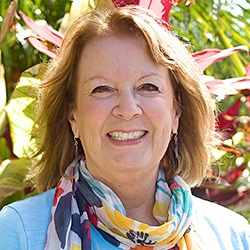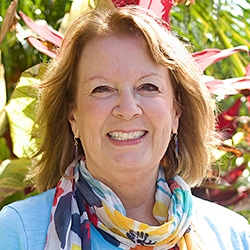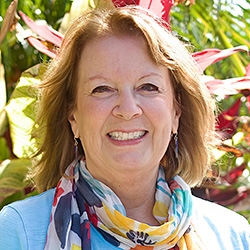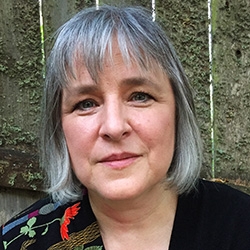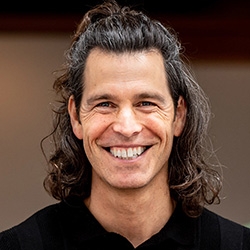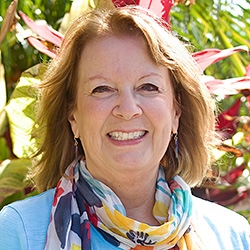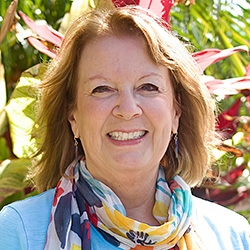
Search Results: child
-
NVC trainer Sarah Peyton explores the process of repairing relationships through the lens of Nonviolent Communication. She emphasizes the importance of self-connection and empathy—both for ourselves and others—when addressing moments of hurt or disconnection.
-
In this stimulating audio recording, Stephanie Mattei covers several "hot" parenting topics such as: boundary issues, strategy resilience, how to shift your right/wrong mentality and understanding the concept of fairness. While unraveling these topics, Stephanie intersperses some practical neuroscience around brain regulation and brain-wise conflict prevention.
-
In this brief audio snippet, CNVC Certified Trainer and founder of the CNVC Parenting Project, Inbal Kashtan, offers a profound insight that can change how we see and relate to our children.
-
To keep our life energy moving and growing we can find the resources to welcome and accompany various parts of ourselves with compassion and love -- as though these parts are very young children. And even if these parts contain difficult emotions...
-
Trainer Tip: It's impossible to value other people’s needs and remain compassionate if we simultaneously harbor judgments. If we're willing to shift this behavior we can translate our judgments into acknowledging how something affects us. Once I got into the habit of this, my judgments began to subside dramatically. It became easy to love people and feel compassion for them, and I experienced a freedom I had never known before.
-
Trainer Tip: What is motivating your (in)actions? Are you doing something in the name of supporting deeper heartfelt needs, free of judgement or blame? Or are you bringing in consequences based on viewing the other person as having "bad behaviour"?
-
Are you eager to translate your vision of a world where everyone’s needs matter into a tangible reality? Do you long to discover your unique role in responding to the challenges of our times? If, so join Miki for 12 sessions that will propel you on your way!
-
- Learn how to transform NVC into a tool for systemic awareness and healing
- Examine the influence of difference, and uncover pathways that strengthen its capacity
- Learn to receive and offer feedback on impact in situations fraught with power differences
- Explore specific ways in which NVC systemically supports the full flowering of humanity
- Delve into the dynamics of cultural differences, and discover how NVC can systemically contribute to a liberation perspective
-
Trainer Tip: Wanting collaboration? Show you value the other person's needs as much as your own. After you both feel heard, you can make joint decisions about specifics of the agreement, such as "division of work", "scope of project", "when the action will take place", "how it'll be done" and "timing of follow up to see how things went". Read on for an example of how this is applied to asking someone to pitch in with doing chores.
-
A chosen, interdependent world… In most cases, that's sure not the world we live in today, is it. But it could be the world we live in tomorrow. And you can choose to be part of bringing that better world to life – to be part of a gradual, joyful transformation – simply by using the dynamic, living power of Dialogue.
-
This anecdote illustrates how a young man had the social awareness to consider how male conditioning may bring up competitiveness in his interactions with another man. The young man offered transparency and checked for consent in a way that shows an embodiment of power-with, togetherness, consideration, care, collaboration... and all without displaying any formal NVC training, and without looking to impress.
-
- Discover how to bring resonance into your conversations with others
- Learn how resonant language and NVC empathy come together
- Practice consent and saying “no”, even when it is difficult
- Feel the movement into more intimacy in your relationships!
-
Yoram Mosenzon suggests that when we make positive language requests, we tell people what we want. We give them an image of what would make life more wonderful. What we usually do is tell people what we do not want. This tends to create resistance.
-
This audio training with expert trainer Rita Herzog explores the NVC alternative to family relationships: stay grounded in your own needs and values so you are able to reach out with empathy to family members.
-
The human brain is a conservative organ that comprises different systems with varying degrees of conscious awareness, which evolved in three basic stages of human history (the lizard-squirrel-monkey brain.) In my understanding, we could say, the brain has strong needs for understanding, order, predictability and meaning. In fact, one of its key functions is to process experiences, and predict what the world is like, in order to maximize survival. CNVC Certified Trainer Stephanie Bachmann Mattei explores the biological basis of our inner jackal voices.
-
In June, 1996, I had an epiphany. In a motel room in Indiana, the night before returning home from a solo camping trip in Michigan and Canada, I discovered how much I had lost in my life because of so fiercely protecting myself. Up until that day, bringing forth my vulnerable self was to be avoided at all costs, which kept me numb much of the time, disconnected from myself and from much of life. Alone in my room, I cried, I talked out loud, and I finally exclaimed to myself that I wanted to reclaim every last bit of my vulnerability, just like I had it as a child.
-
Trainer Tip: Mary explains the NVC principle known as the "protective use of force."
-
Trainer Tip: Q: How do we get the love we want? A: Ask for it.
-
One of the most important things you can do to live a meaningful and rewarding life filled with vitality is reclaim your emotions. Eric offers a tip to reclaim your emotions, rescuing you from the numb and deadening state of “fine."
-
When we take a leap in life and put our hearts out into the world in new or bigger ways—sharing a song, dance, or poem, writing a book, competing at a sporting event, giving a speech, and so on—there is greater potential for aliveness but also for shame and pain





